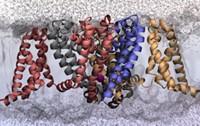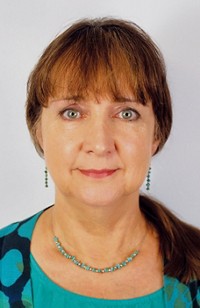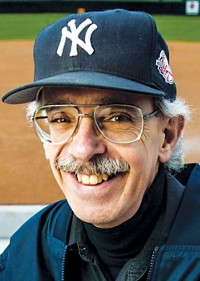Advertisement
Grab your lab coat. Let's get started
Welcome!
Welcome!
Create an account below to get 6 C&EN articles per month, receive newsletters and more - all free.
It seems this is your first time logging in online. Please enter the following information to continue.
As an ACS member you automatically get access to this site. All we need is few more details to create your reading experience.
Not you? Sign in with a different account.
Not you? Sign in with a different account.
ERROR 1
ERROR 1
ERROR 2
ERROR 2
ERROR 2
ERROR 2
ERROR 2
Password and Confirm password must match.
If you have an ACS member number, please enter it here so we can link this account to your membership. (optional)
ERROR 2
ACS values your privacy. By submitting your information, you are gaining access to C&EN and subscribing to our weekly newsletter. We use the information you provide to make your reading experience better, and we will never sell your data to third party members.
Physical Chemistry
Speeding Up Computations
Code harnesses graphics processors for faster chemical calculations
by Elizabeth K. Wilson
September 22, 2008
| A version of this story appeared in
Volume 86, Issue 38

IT'S NO SURPRISE that computational chemists' idea of their field's next big thing usually involves speed. The swiftness with which a computer can calculate molecular structure or dynamics has always been the bottleneck for advances in quantum chemistry.
Ivan Ufimtsev's promise of big jumps in computational speed made him the winner at this year's "Emerging Technologies" symposium, sponsored by the ACS Division of Computers in Chemistry and software company Schrödinger. Ufimtsev, a graduate student in the lab of Todd Martinez, a chemistry professor at the University of Illinois, Urbana-Champaign, unveiled a new strategy for harnessing a computer's graphical processing unit (GPU) to accelerate some quantum chemical computations by up to 100 times.
At the symposium, which was held during the ACS national meeting in Philadelphia last month, Ufimtsev described the group's new "massively parallel" code, called TeraChem (short for teraflop chemistry). With TeraChem, the group was able to calculate the structure of molecules such as olestra and a 12-base-pair segment of DNA within several minutes on a desktop machine, Ufimtsev said.
GPUs were originally designed to process graphics in video games. Although a computer's central processing unit (CPU) has traditionally been used for computations, scientists have recognized that the GPU's highly parallel processing structure is ideally suited to solving certain types of problems, such as fluid dynamics. In the past few years, a number of research groups have been devising ways to retool GPUs to do science.
THE USE of GPUs specifically for quantum chemistry is even newer, Ufimtsev said. Electronic structure calculations, for example, involve calculations of the interactions between each possible pair of electrons in the molecule. For a large molecule, these calculations become prohibitively numerous for a CPU. But a GPU can quickly run hundreds of them at once.
Curt M. Breneman, chemistry professor at Rensselaer Polytechnic Institute, in Troy, N.Y., and organizer of the symposium, described the competition as "lively." Topics included a strategy for combining computational macromolecular design and organic synthesis from Temple University chemistry professor Christian E. Schafmeister and new ways to study protein-ligand interactions from Patrick Pfeffer of Philipps University of Marburg, in Germany.
The "Emerging Technologies" symposium, with its $1,000 prize, has become a mainstay for the Computers in Chemistry Division at fall ACS meetings. The division, which has more than quadrupled its budget in the past 10 years, also hosts two other competitions: the Chemical Computing Group Excellence Award for graduate students and the Hewlett-Packard Scholar Awards for junior faculty on the tenure track.
When selecting a winner in emerging technologies, "one of the questions the symposium judges ask is 'how much effect will this have on chemistry in the next five to 10 years?' " Breneman said. Ufimtsev's talk, he added, "was the one that caught our eye as being representative of the future of computational chemistry."





Join the conversation
Contact the reporter
Submit a Letter to the Editor for publication
Engage with us on Twitter